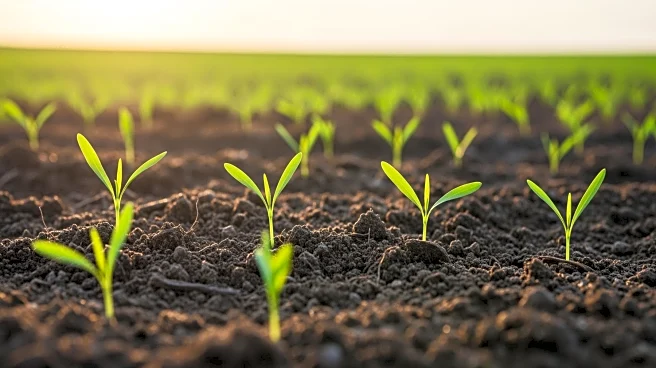What's Happening?
During COP30, donors committed over $142 million to the CGIAR to enhance agricultural research and innovation aimed at developing climate-resilient food systems. The funding, contributed by countries including the United Kingdom, Denmark, Belgium, and Canada,
is intended to support smallholder farmers facing challenges such as droughts, pests, and market shocks. CGIAR, which operates in over 80 countries, has been instrumental in developing drought-tolerant seeds and climate-smart agronomy practices. The pledges aim to scale research efforts to reduce agricultural emissions and strengthen resilience in vulnerable regions.
Why It's Important?
The financial commitment at COP30 is crucial for addressing the disproportionate impact of climate change on agriculture, which produces a significant portion of the world's food but receives minimal climate finance. By supporting CGIAR's research, the pledges aim to bridge the gap between the need for climate adaptation and available resources. This funding could lead to significant advancements in agricultural practices, improving food security and farmer livelihoods in regions most affected by climate change. The initiative highlights the importance of integrating scientific research with practical solutions to enhance global food systems.
What's Next?
The pledged funds are expected to be deployed to scale proven innovations and attract private investment through blended finance mechanisms. This approach aims to create bankable transactions that can support long-term agricultural projects. Policymakers and financial institutions are encouraged to develop practical instruments that bridge research and markets, ensuring that CGIAR's evidence-based solutions reach farmers effectively. The success of these efforts will depend on the ability to translate research funding into sustainable agricultural practices that can withstand climate challenges.















